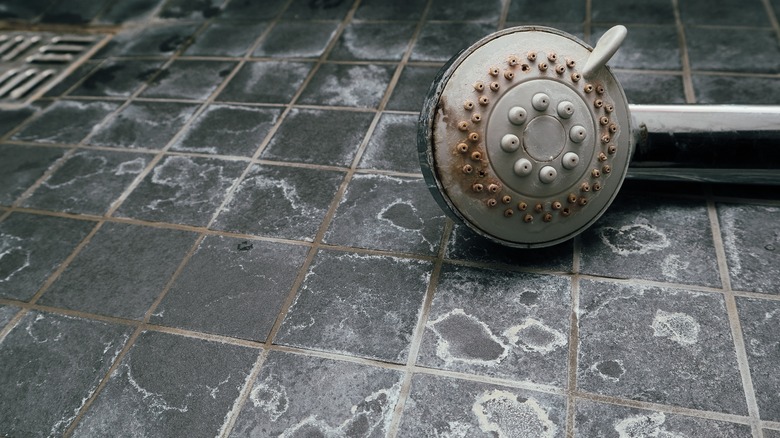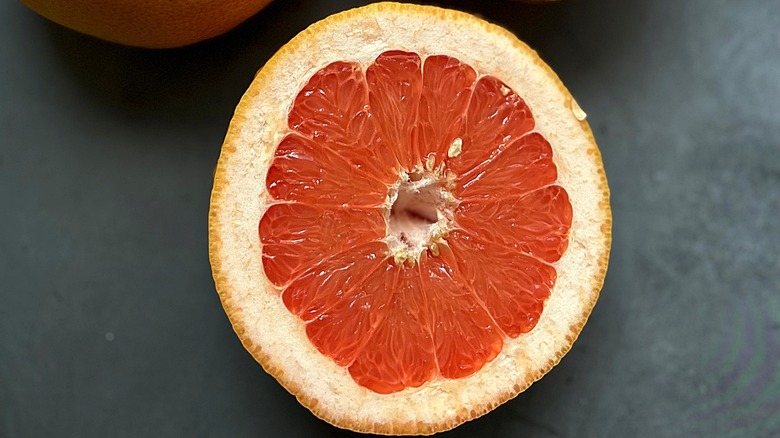The Fruit You Can Use To Banish Soap Scum
Soap scum is a common evil that everyone with a shower is well acquainted with. It's a filmy white layer that covers everything from your bathroom tiles to your shower glass doors to your faucet, and it's a combination of body oils, dirt, hard water minerals, and soap. This scum makes your shower look dirtier than it is, so most people are in a rush to scrub it off come chore day. The trick to effectively (and efficiently!) removing it is to use acid to cut through the buildup. When you don't have a bottle of distilled vinegar or your favorite cleaning product on hand, a grapefruit and some salt can do the trick. To use these materials, simply add the salt to half of a grapefruit and then scrub away the scum.
You have probably seen people clean with lemons; perhaps you've heard of adding a lemon to the dishwasher to remove hard water spots or using salt and a lemon to clean your cutting board. The same idea applies to grapefruits. These acidic fruits can help you cut through mineral buildup and grime without much effort, helping you clean your shower or sink even if you don't have the proper cleaning supplies on hand. Here is how to do it and why it works, as well as when you shouldn't try this trick.
How to use a grapefruit to clean soap scum
To use a grapefruit to clean your shower or sink, you need to combine it with a dash of salt. The fruit will act as a product-laden sponge that contains citric acid, while the salt will serve as a gentle abrasive that buffs away the buildup. To utilize this hack, slice the grapefruit in half, pour a small amount of salt on top of the fruit, and rub it on any surface that is covered in the chalky scum. Citric acid, which is found in grapefruits and other citrus fruits, can do everything from descale your fixtures to get rid of hard water deposits, which is why it's effective when removing soap scum. Soap scum is partly made from hard water mineral deposits, so it helps to cut through it.
However, there are some caveats to using this hack. While this works great on ceramic and porcelain tiles, it should not be used on natural stone like marble or granite. The acid will eat away at the surface, leaving unsightly marks. That's why you also shouldn't use any other citrus fruits, vinegar, or powerful cleaners on these surfaces. Instead, use a pH-neutral product or one that's made specifically for the material you're cleaning to tackle the job.

